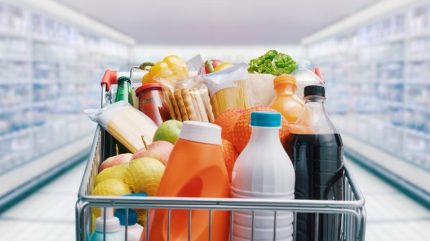
The UK’s leading food and drinks industry body is calling on the government to boost trade relations with the EU and support investment in training among fixes to address a reluctance to invest.
UK food and beverage manufacturers are either cutting back or cancelling investments because of the prevailing economic challenges, according to The Food and Drink Federation (FDF).

Discover B2B Marketing That Performs
Combine business intelligence and editorial excellence to reach engaged professionals across 36 leading media platforms.
Allied with increasing production costs, a shortage of skilled labour in a rising wage environment, and ebbing confidence among industry players, the FDF has urged the UK government to “prioritise a more strategic approach to EU trade relations” to revive exports still floundering in the wake of Brexit.
“As industry’s ability to invest suffers, it’s critical that food and drink receives its fair share of government funding and support to unlock innovation in the UK’s largest manufacturing sector,” the FDF said as it presented the latest findings from its State of Industry report series.
The FDF suggested vacancy rates within the food and drinks sector are “more than double” those in the UK’s wider manufacturing industry, adding that government investment in skills training is “vital to plug this gap”.
“It’s concerning that businesses are having to scale back investments that would help drive long-term growth and productivity as they ride out a wave of cost rises,” Balwinder Dhoot, the FDF’s director of industry growth and sustainability, said as he stressed how the food and drinks sector is “fundamental to the nation’s food security”.

US Tariffs are shifting - will you react or anticipate?
Don’t let policy changes catch you off guard. Stay proactive with real-time data and expert analysis.
By GlobalDataHe added: “We urge government to give businesses the support they need to make investments that will support the resilience of the food industry.”
Based on the FDF’s research, 41% of UK food and beverage businesses plan to cancel or curtail investment in the year ahead in areas such as automation due to the recent Labour government’s increases in the national minimum wage and employer national insurance contributions.
“Geopolitical uncertainty” is exacerbating investment decisions, it said.
Some 33% of food and drinks businesses, including 47% of small- and medium-sized enterprises (SMEs), “expect conditions to further deteriorate as they grapple with volatile global economic conditions and increased costs as a result of new government policies”, the trade body revealed.
Meanwhile, confidence among manufacturers “remained persistently low” at 43% in the first quarter, the research found.
While simplifying regulations and removing red tape remain common gripes in the industry, the FDF urged the government to allocate more financial resources to support R&D in the sector, particularly around providing healthier options for consumers, and to make it easier to secure tax credits.
Trade agreements struck recently with India and the US, although the latter is currently limited in scope, were welcomed by the FDF as industry costs rise.
It suggested production costs for food and drinks manufacturers increased by around 4.5% in the year through March, with 22% of those surveyed identifying a rise of 10% or more. And they expect an additional 4.8% increase in the next 12 months linked to energy, ingredients and labour costs.
While the trade agreements will help boost “competitiveness” for the UK food and drinks industry, the government must “push for a reduction in the current 10% tariffs imposed by the US, whilst also strengthening our relationship with our strongest trading partner, the EU”, the FDF said.



